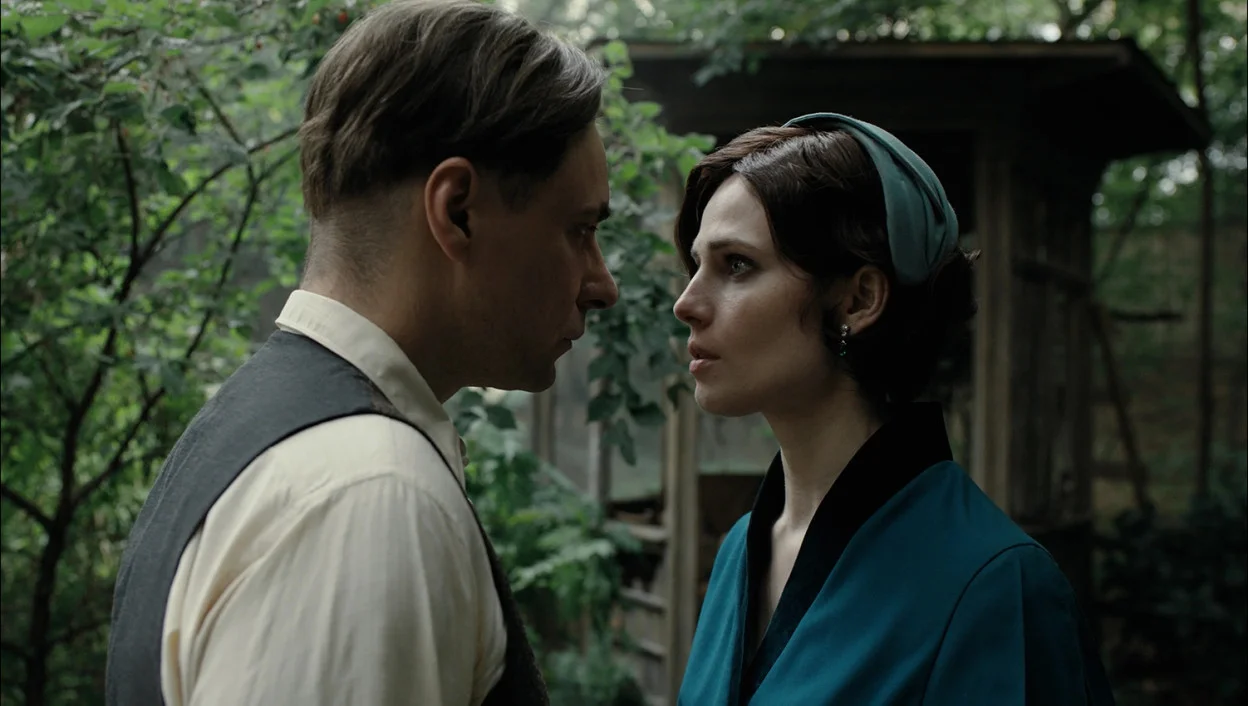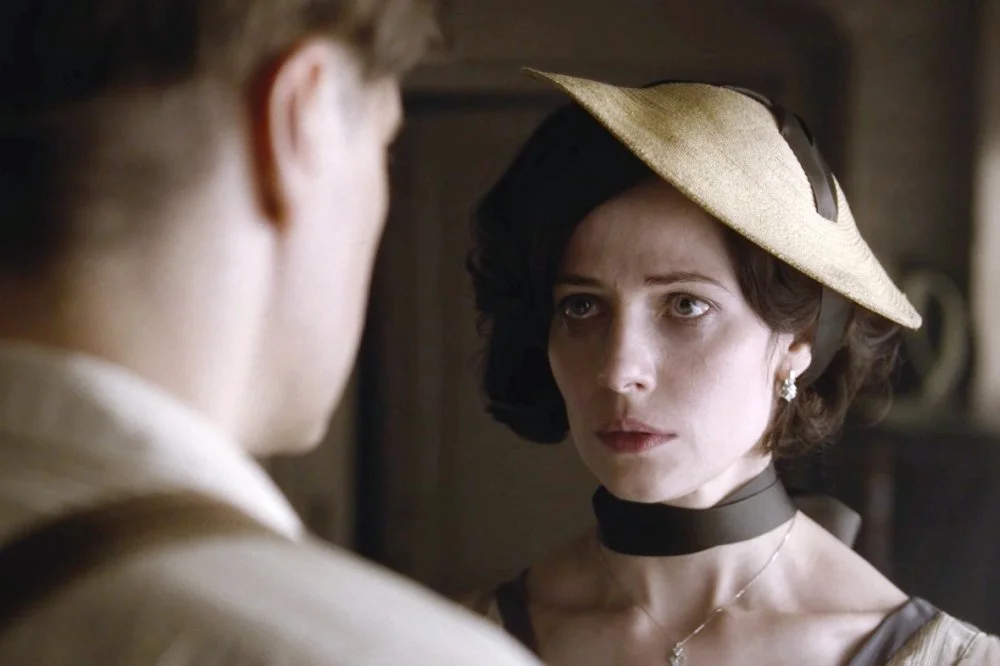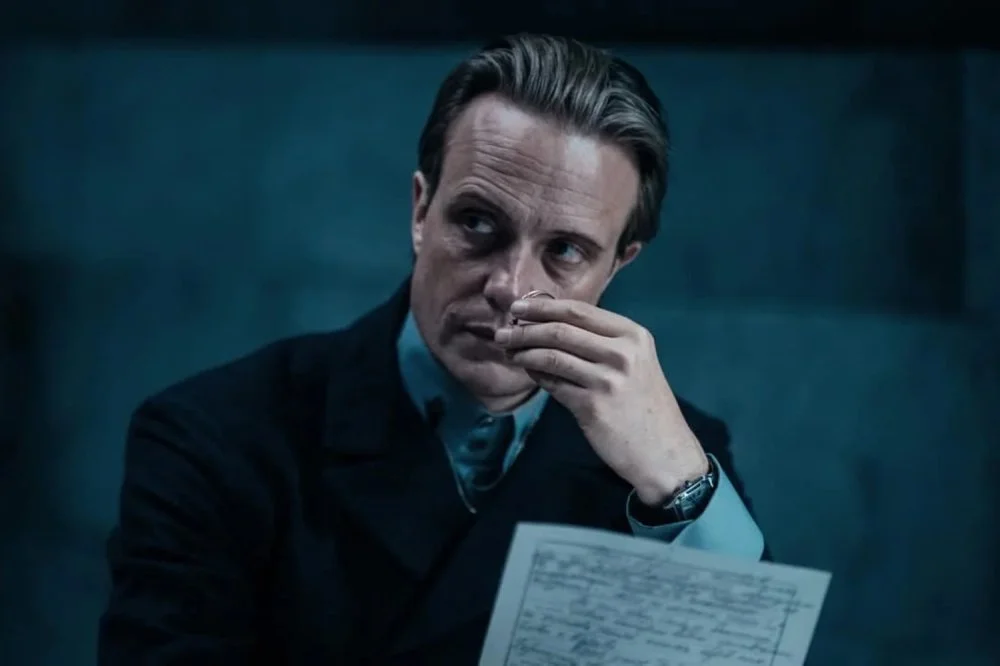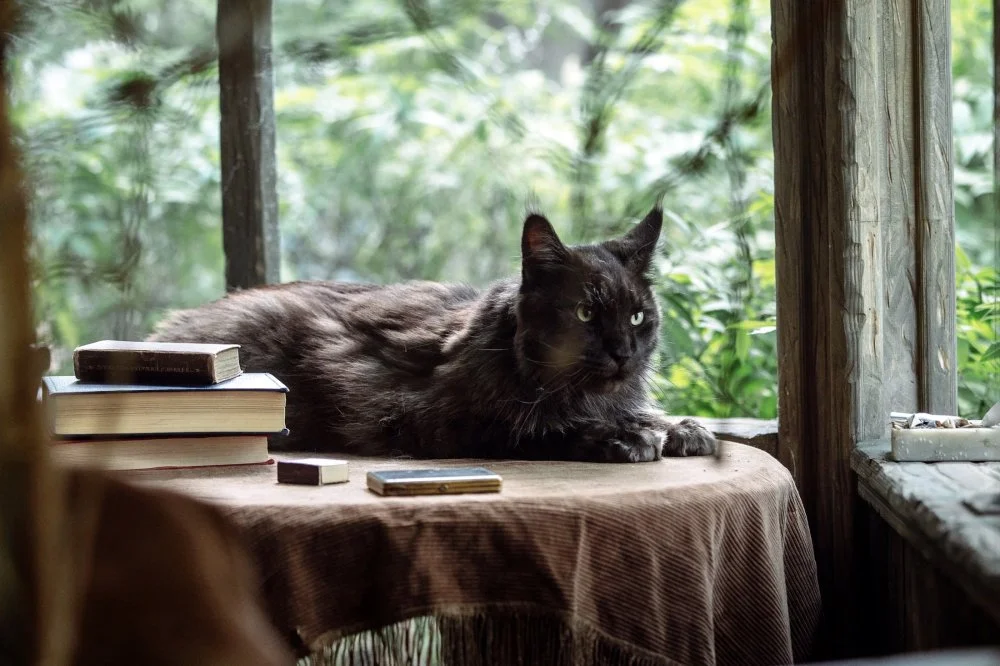
Evgenii Tsyganov and Yulia Snigir. A shot from the film Master and Margarita. 2023/Mars Media
Maxim Semelyak explores why the much-discussed screen version of The Master and Margarita lacks Bulgakov’s typical devilry, how the movie resembles fan fiction, and why the story of the novel will always be politicized.
Mikhail Lokshin's film adaptation of The Master and Margarita, though somewhat removed from the essence (and even the literal text) of Bulgakov's prose, succeeded in underscoring the inherent complexity of the text in its own way.
Who would have thought that a lengthy, well-known novel from the 1960s would once again be brought into the limelight primarily because of its political connotations? Nevertheless, the latest cinematic rendition of The Master and Margarita is largely evaluated through the lens of dissent, with some viewing it as a striking blow against totalitarianism and others as an endorsement of espionage and Satanism.
An old line from Brodsky could well sum up the film: ‘I am both anti-fascist and anti-Faust.’ It portrays an atmosphere of fear, persecution, and violence, where children shoot each other with slingshots, and characters deliver lines like ‘The guard is tired, Comrade Playwright’ or ‘How our Pilate went to work at the commissariat.’ The Master's story mirrors the real-life struggles of Mikhail Bulgakov. Denied the opportunity to stage his play Pilate, he loses his livelihood and sanity. Making a pact with the devil's entourage, he begins writing The Master and Margarita.
Another notable aspect of the adaptation is its accessible technological spectacle (even though the cat portrayal still didn't quite hit the mark). The film starts in a way much like Paul Verhoeven's Invisible Man, evolves like Baz Luhrmann's The Great Gatsby, and overall, subtly resembles the recent film Captain Wolfhound Ran Captain Volkonogov Escaped (set in an alternative USSR of the 1930s, featuring mandatory airships and poisonous totalitarian kitsch, which are effectively present in the new version of The Master and Margarita as well).
There's nothing inherently wrong with the attempt to transform the novel into a dramatic fantasy about superpowers, but the final shift in genre never quite happens. Perhaps the creators should have fully embraced that direction and worked to craft an overtly grotesque dark fairy tale reminiscent of Tim Burton (with Eva Green, who has previously starred in his movies, being a fitting choice to play Margarita).

A shot from the film The Master and Margarita. Yulia Snigir as Margarita. 2023/Mars Media
However, strangely enough, the Moscow depicted here dispels any sense of the supernatural and undermines Bulgakov's humor. The film is deliberately dark and dreary, and apart from the central couple, the casting is irritatingly meager. Everyday life and the notorious housing issues—which affected Bulgakov himself when he asked the leadership of the Soviet Writers' Union to move him from a three-room apartment on Naschokinsky Lane to a four-room flat in Lavrushinsky—have disappeared.
Thus, due to the liberties taken and the improvisations made, the film resembles fan fiction rather than an adaptation. Comparing the book and the film is a somewhat thankless task, especially since the creators had initially declared that they would employ a certain creative freedom in their treatment of the source material. However, the problem lies not so much in the emergence of a new interpretation of this revered text but in the fact that this novelty is clichéd, lacking the sought-after freshness found in the performances of Igor Vernik (Bengal) and Marat Basharov (Likhodeev). Could a love story unfolding amidst the backdrop of a hyper-totalitarian Moscow be too overwhelming for the essence of Bulgakov's text? For example, in the Italian-Yugoslav adaptation of The Master and Margarita (1972), there's an abundance of wild eccentricity. Yet, it's this unrestrained wildness, such as the scene where the Master and Margarita ride in a car to the tune of ‘Oh, Curly Rowan Tree’,i
Distorting the source material in the new version isn’t as sacrilegious as it is simply a bizarre extravagance. Why strip away all of Bulgakov's impeccably witty elements and substitute them with one's own dubious creations? For example, a memorized aphorism from the scene at Patriarch's Ponds in the film goes like this: ‘To grab Kant by the ass and send him to the Solovetsky Islands?’ What is the significance of this ‘grabbing by the ass’ here? In the novel, Ivan Bezdomny is fiery but not to this extent or in this manner. Another example (and there are countless): Margarita makes a forced joke that during the flight, she'll be shot down, like a brave Soviet aircraft targeting an enemy target. What's the use of concocting a new subversive line when she already has excellent words on more or less the same theme in the novel: ‘I like speed and nudity. Like from a Mauser—bang!’

A shot from the film The Master and Margarita. August Diehl as Woland. 2023/Mars Media
Yevgeny Tsyganov's portrayal of the Master adeptly conveys a sense of exhaustion with life. However, he fails to embody the image of a person deeply engrossed in literary endeavors, on the verge of enlightenment, who is also proficient in five languages and has a modest grasp of Italian, as portrayed in the novel. His Master excessively indulges in champagne and, overall, appears somewhat more present and earthly than he should.
On the contrary, Yuliya Snigir, with her ethereal beauty, could have been the ideal Margarita, but the character envisioned by the filmmakers emerges as much too doll-like and insubstantial. In Bulgakov's portrayal, Margarita is cross-eyed, constantly experiences a great, wolf-like hunger, frequently curses, indulges in spirits, and actively flirts with Azazello, who mockingly calls her a fool. She constantly bares her teeth and laughs, and in the novel's drafts, she even amusingly interacts with a resurrected golden phallus. ‘The satiated Margarita experiences a feeling of bliss’ marks one of her most characteristic states.
In the novel, it is Margarita who is closer to Woland, while in the film, it is the Master. As Alexander Zerkalov wrote in the book Bulgakov's Ethics, ‘the feminine principle of the Mother of God is somehow shifted towards the devil—just as the devilish principle of Woland is shifted towards Christ.’
Concerning Woland himself, despite August Diehl's skill and artistry, there remains a sense in this film that his portrayal of the devil has stepped out of a Rammstein music video. Overall, it appears that only one actor in this adaptation seems entirely natural—Aleksandr Yatsenko in the role of Aloisy. Given his flawless embodiment of the Bulgakovian essence, he could have also played Koroviev, Bezdomny, and Likhodeev.

A shot from the film The Master and Margarita. Behemoth played by Maine coon Kesha. 2023/Mars Media
Indeed, in Russia, there's a longstanding tradition of interpreting The Master and Margarita solely as a political work. Allow me, however, a brief recollection on this matter. I read The Master and Margarita in my childhood in old parental samizdat prints. These were likely bound excerpts from the Moscow magazine or a later separate edition reprint. One question Azazello asked in the novel stuck in my memory: ‘Was it you who, after reading Latunsky's article about this man's novel, wrote a report on him, stating that he possessed illegal literature?’ In this sentence, someone in deeply Soviet times crossed out the word ‘report’ with a pencil and added the word ‘denunciation’ above it. I do not know by whom or when this radical annotation was made. Still, it seems that the history of Russia always dictates the intensification of meaning and the politicization of intent.
This recent adaptation of The Master and Margarita, which primarily emphasizes the socially liberating dimension of Bulgakov's text, precisely echoes this remark. The distinction lies in the fact that it is executed not with a pencil but in a much more bold and picturesque manner.